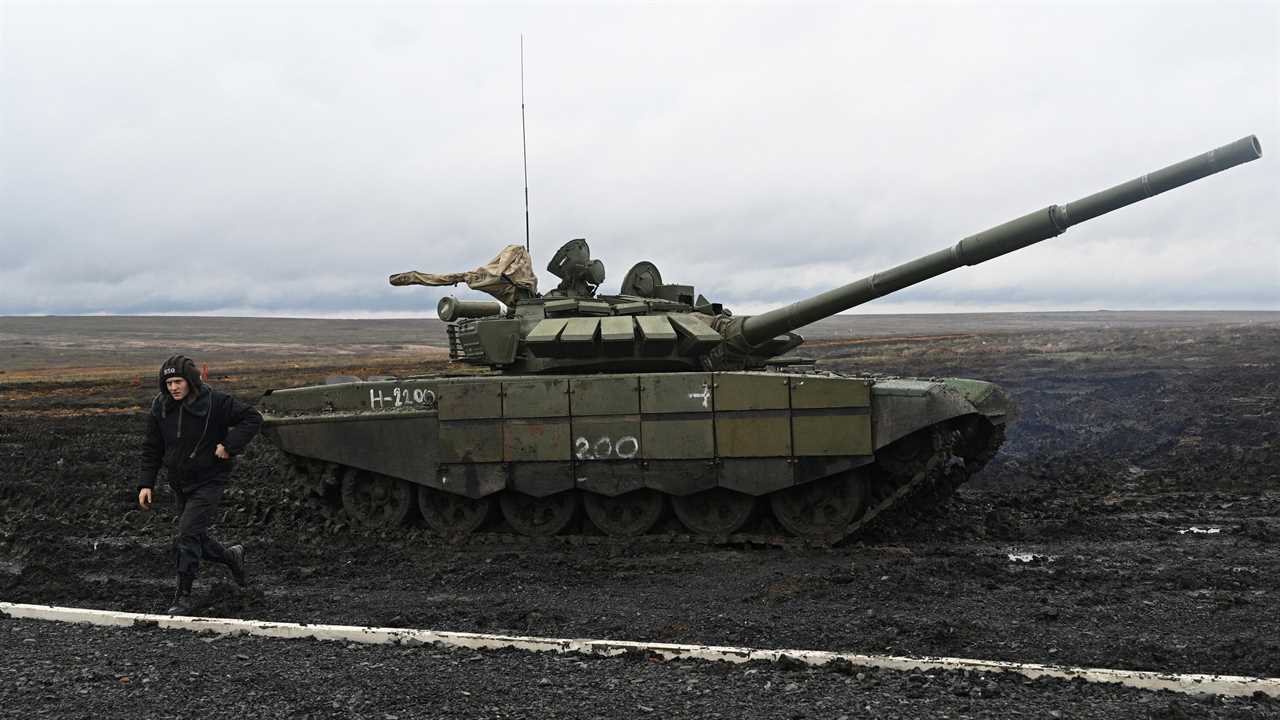
President Biden will talk to President Vladimir V. Putin of Russia on Thursday about the grinding crisis at the Ukrainian border, White House officials said, the second time in a little over three weeks that the two leaders will speak directly about what Washington sees as Moscow’s effort to redraw the map of Europe.
Mr. Putin requested the call, the officials said. His desire to speak directly with Mr. Biden again set off speculation in Washington and Europe about whether Mr. Putin was trying to de-escalate a situation largely of his own creation, or whether he was seeking a response to a series of demands about Russian security concerns that, if left unfulfilled, may provide him with a pretext to initiate the military action he has threatened in Ukrainian territory.
The call will follow three weeks of furious behind-the-scenes negotiating, much of it between Mr. Biden’s national security adviser, Jake Sullivan, and his Ukrainian and Russian counterparts. On Wednesday, to prepare for the call, Secretary of State Antony J. Blinken spoke with President Volodymyr Zelensky of Ukraine, and to his British, French and German counterparts. American officials said it was part of an effort to make clear that the United States would not negotiate about the future of Ukraine or borders in Europe behind the backs of the region’s leaders.
But Mr. Putin clearly wants to deal primarily with the United States and its leadership, much as the Soviet Union did during the Cold War. He is likely to push Mr. Biden for answers about a proposed treaty in which Moscow demanded assurances that Ukraine would never join NATO — which would bring Western troops and missiles even closer to Moscow — and that the alliance would not place offensive arms in the former Soviet states.
The United States and NATO allies have not responded to the specifics of the proposal, saying that when they do, they will do so in private, at the negotiating table. But last week, speaking at the Council on Foreign Relations, Mr. Sullivan said the United States would bring its own list of security concerns to those talks, which are now scheduled to begin on Jan. 10.
A senior administration official told reporters on Wednesday that Mr. Biden and Mr. Putin would not be directly involved in the Jan. 10 negotiations, which will most likely take place in Geneva. That is where the two men met for a brief and tense summit in June, before Russia massed roughly 100,000 troops along Ukraine’s border.
The official said the American delegation next month would be led by the State Department, likely Deputy Secretary of State Wendy Sherman, and would include Pentagon and National Security Council representatives.
There have been no signs of significant de-escalation on the border, said the official, who spoke on the condition of anonymity under ground rules set by the White House. Mr. Biden will communicate to Mr. Putin on Thursday that “for us to get to a place where we have security and stability in Europe, a context of de-escalation rather than escalation will be required,” the official said.
But the official said that Ukraine had already put “short-term confidence-building measures” on the table with Russia, including a recommitment to a 2020 cease-fire agreement along the border.
Meanwhile, the Kremlin has been sending conflicting signals. Over the weekend, Russia declared that 10,000 combat and special forces troops were returning to their barracks after concluding exercises. But few of those troops were close to Ukraine’s border.
Intelligence officials from several Western countries say there has been no significant pullback of Russian troops or equipment from the border, and that low-level cyberattacks — many seemingly intended to penetrate Ukrainian infrastructure — are continuing.
Understand the Escalating Tensions Over Ukraine
A brewing conflict. Antagonism between Ukraine and Russia has been simmering since 2014, when the Russian military crossed into Ukrainian territory, annexing Crimea and whipping up a rebellion in the east. A tenuous cease-fire was reached in 2015, but peace has been elusive.
“We continue to be gravely concerned about the nature of the Russian troop presence there and the capability they have,” the senior official said.
Hoping the specter of more economic pain will deter Mr. Putin, the White House has very publicly moved to win agreements from Western allies to impose severe sanctions on Russia if it conducts a significant attack on Ukraine. The sanctions, they have said, will be considerably harsher than those the West levied in response to Moscow’s 2014 annexation of Crimea. Those penalties remain in place, and Mr. Putin remains in control of Crimea.
But Mr. Putin is seeking to make clear that he, too, has allies.
On Wednesday, Mr. Putin announced that a joint military exercise of Belarusian and Russian troops would take place early next year in Belarus, north of Ukraine. In the televised remarks, it was presented as a request from the Belarusian leader, Aleksandr G. Lukashenko.
“I know your commanders are considering my suggestion for training on the territory of Belarus,” said Mr. Lukashenko, who had said this fall that his country would join Russia in any conflict with Ukraine, raising fears that a military action might begin in Belarus. Moscow has massed hundreds of armored vehicles, artillery pieces and troops near the small Russian town of Yelnya, which is close to both Belarus and Ukraine.
“I would like this proposal to be approved,” Mr. Lukashenko said.
Mr. Putin responded: “As you have suggested, we will carry it out early in the year. The commanders will agree for March or February, I don’t know, whenever they decide.”
Did you miss our previous article...
https://trendinginthenews.com/usa-politics/2-georgia-republicans-rack-up-fines-for-defying-houses-mask-mandate






